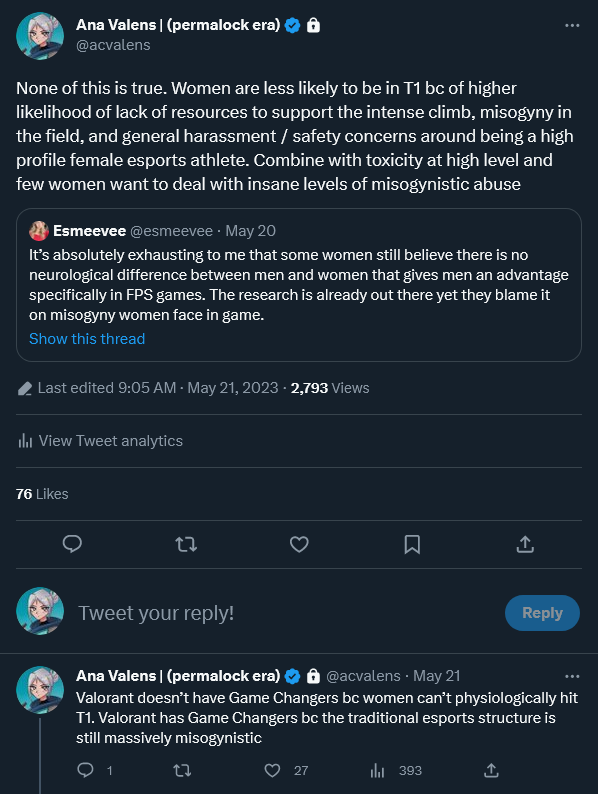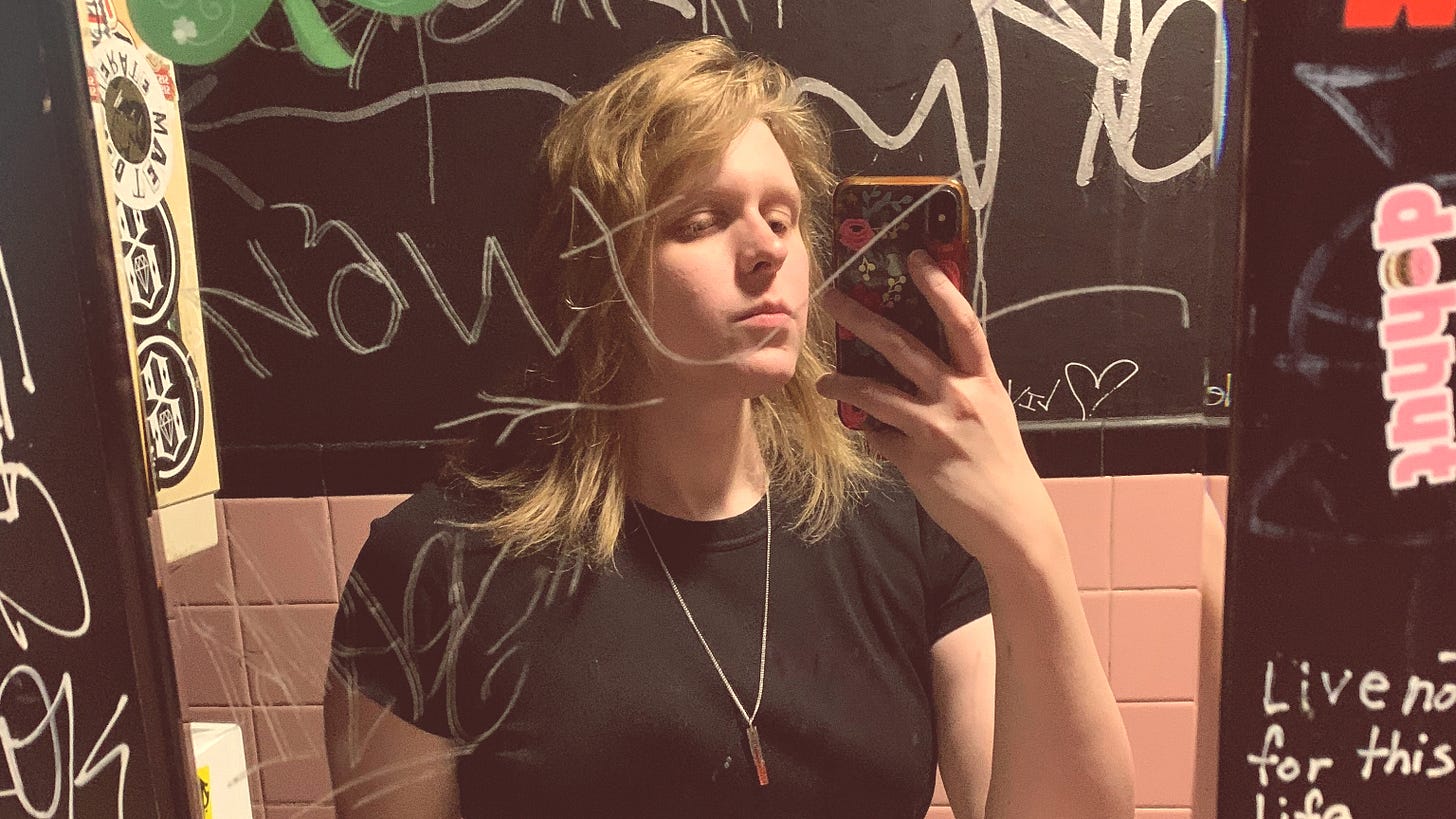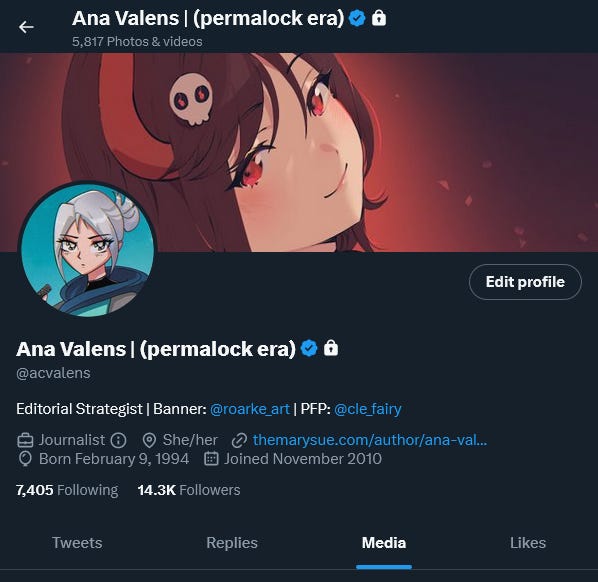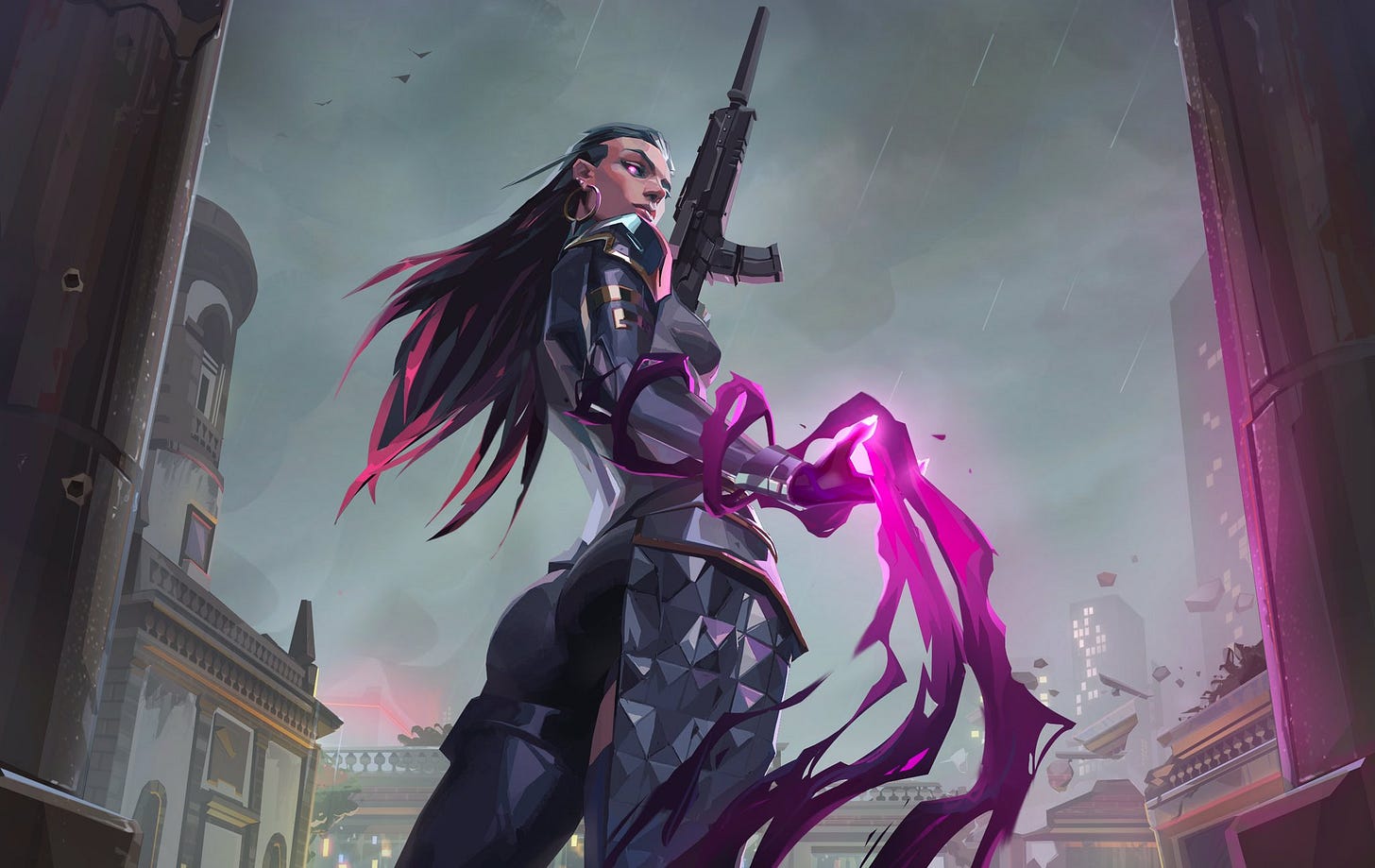Despite facing great emotional pain on a day-to-day level, I think I might be living the best days of my life so far. In August, I began recovery for Obessive-Compulsive Disorder through Exposure and Response Prevention Therapy (ERP). Using a Dialectical Behavior Therapy (DBT) model, I’ve gradually taught myself how to face an emotion that’s otherwise controlled my life: anxiety.
Anxiety would get in the way of everything. It would ruin time with friends. It would infect my friendships and romantic relationships. It would cause me to obsess and fret over my hobbies. And it would devastate my writing career, as I would edit and overedit almost everything I’ve ever written out of an obsession with perfectionism.
Since last summer, I’ve been working with my therapist to reframe my relationship with anxiety. I’ve learned that anxiety and distress are not avoidable parts of life, but manageable events that can be tolerated and accepted. Bit by bit, my life came back to me. My social anxiety dwindled from an unstoppable monster to an annoying, but understandable, nuisance. Competitive Valorant returned into my life, and I began tackling my peformance-based OCD by accepting in-game failure. My relationship OCD changed, and I became far more tolerant of all those normal intrusive thoughts that come with intimate partnerships, things like, “What if I don’t really love someone?” To my surprise, I even learned how to deal with physical pain better, as I recently found out after my most extensive face slapping experience with a domme yet (thanks Snow!).
It’s also thanks to recovery that I’ve started to exise things that fail to serve my emotional and mental health. And it’s why I’ve decided to undergo my so-called "permalock era” on Twitter.
Why doesn’t the Discourse work?
In early 2022, I received an email from a Breitbart reporter. He was fishing for a quote from me for a potential article about my tongue-in-cheek breeding farm tweets. Fearing the worst, I decided to lock my Twitter account, and I’ve more or less kept it locked since. It’s a decision I’m happy I made, one I’m likely to transfer over to Blue Sky the moment that platform becomes infected by Twitter’s Discoursey problems. Which I fear greatly, because the Discourse on Twitter fucking sucks.
My long-time readers will probably think me a bit of a hypocrit for criticizing the Discourse, and you’d be damn right to call me one. I basically built my career off being a Discourse reporting machine. When I used to write for the Daily Dot, my work across all four years involved responding to the Discourse in some shape or form. I weighed in on whether games journalists need to be good at video games, shared my hot takes on Cyberpunk 2077’s uncomfortable relationship with transfeminine bodies, and dissed Andrea Long Chu and Natalie Wynn just because I could. I became an expert on the Twitter Discourse apparatus, and how to sound correct without using a holier-than-thou tone. It was addicting, it built my Twitter following up to unexpected heights, and it landed me a ton of gigs on podcasts and panels. This Substack even started as a way to continue that legacy, commenting on things like kink at Pride and Twitter conversations on the “male gaze” concept.
I cut down on writing after I became an Editorial Strategist for GAMURS in 2022. There just wasn’t enough time to write every day. And the more time I spent away from writing thinkpieces on the latest online controversy, the more the constant arguing on Twitter started to annoy me. The same conversations would emerge and reemerge, then rereemerge, each time left just as unresolved as the last, with the same 100 people becoming more convinced in their righteous opinions.
Now, as a journalist and opinion columnist, I think the written word (and its audiovisual counterparts) are incredibly important places to challenge peoples’ preconceived beliefs and opinions. Public, moderated, and good faith debate can cause people to rethink their relationship with gender, sexuality, kink, and so many other topics. Respectful disagreement allows us to see the flaws in our worldview, and, when done mindfully, exposes us to biases we were completely and utterly unaware of. At the very least, it can be a call to accept and change our beliefs.
But there’s a difference between mindful public debate that centers marginalized groups, and the Discourse apparatus that’s plagued Twitter. One is built on respect, the other is built on emotionally intense bickering. And to be honest, I don’t remember the last time the latter actually changed the way I think about the world.
During this hectic and liminal recovery period of my life, a lot has changed. But the biggest changes in my life came from hard conversations with friends, navigating conflict with my gaming buddies, and challenging myself emotionally through my DBT ERP program. Case in point, running a competitive Valorant community changed me in positive and healthy ways, as it made me accept disagreement as an inevitable part of life — and it taught me how to check my self-righteous tendencies at the door.
To grow, I had to stop perceiving myself as an ur-victim speaking truth to power on social media, and start seeing myself as a flawed person who has to challenge herself to a higher standard. This meant taking time away from Twitter, and seeking out secluded, private spaces instead. And so as I entered this stage of my life, I met friends who were able to argue, disagree, and agree to disagree on issues of sexuality and gender in productive and mutually respectful ways. In other words, we were able to be wrong, accept challenging beliefs, and learn from one another because everything happened privately in safe and loving spaces.
This is incredibly hard to do in a public capacity, where there are hundreds, thousands, or even tens of thousands of eyes on every single word you write. Eyes that don’t care about your personal growth and certainly don’t love you.
Experiencing discussion away from “Discourse” made me realize something: Discourse isn’t really about conversation or communication, but tactically securing popular support on a given talking point. It’s a battleground, where the goal is to actively change public behavior on a given issue, often at the force of public rejection. This is a double-edged sword, as public acceptance does not bend at the will of progress, but the personal biases and prior agreed upon beliefs of the largest group in the room. For example, a group of queer American zoomers may generally agree that “groomer rhetoric” is bad for the queer community, but they may reject abolishing the sex offender registry on spec because of unexamined biases in favor of the carceral system. (See Judith Levine and Erica R. Meiners’s The Feminist and the Sex Offender for more on this)
This means when two people argue on Twitter, it can actually increase resistance to controversial albeit progressive ideas. It’s easy to be wrong in front of one person; it’s very hard in front of 100. It can also make people generally accept (if not reinforce) a popular idea without critically thinking about it.
In both cases, you’re far more likely to engage in productive conversation within a non-public location. This allows people to talk in a space without a public record attached, and it’s where people are more likely to show their true colors on a given topic or social issue. Unfortunately, Discourse does not encourage vulnerability on Twitter, nor is it built to change peoples’ minds in a nurturing and caring way — even though people are under the misconception that it’s carried out for the betterment of marginalized individuals.
Gaslight, gatekeep, girlboss
So, why do we Discourse in the U.S. left? Certainly out of helplessness, because it feels like the left cannot carry out meaningful change beyond altering the beliefs within a person’s local social network (or at least, the illusion thereof).
We also engage in Twitter Discourse out of annoyance directed at each other, self-righteously believing we are right and the other person is wrong — this is common on issues like “are ‘sapphic’ spaces more annoying than lesbian spaces?” or “is religion Bad because it’s Not True?” In this iteration’s worst case scenario, we can even Discourse out of internalized bigotry, which results in trans women cruelly quote retweeting each other, or lesbians insulting one another over, again, silly adjectives like “sapphic” vs “dyke.”
More than anything, though, I think we gaslight ourselves on Discourse. We say it’s a space to resolve issues in leftist thought, when it actually serves as a venting space for cruelty. It grants people the ability to feel self-righteous while casting their neighbors as transgressors, and it gives leftists an acceptable venue to criticize and gossip about each other without looking petty or bigoted. It can also be self-destructive, as Discourse is a high-stakes social endeavor. Intense conflict with widespread social rammifications provides a rush of dopamine and adrenaline, and it can activate the parts of our brain that have undergone traumatic experiences. In other words, some posters get caught up in particularly intense conflict because conflict is in and of itself a stress-seeking trauma response, and retraumatizing yourself is addicting.
This was the case for me. Early in my career, I flirted with public attention in the Discourse because I felt bored, sad, or upset with my life, and I wanted to flood my body with stress and adrenaline to avoid the bad feelings. I don’t think I’m alone in that regard, and it’s why I’ve started discussing repeated exposure and addiction to extreme online content (severe harassment, shock films / images, and so on) as a place of traumatic stress.

Locking down my account became a rejection of all this and more. Fuck the Discourse. Fuck the traumatic cycle we put each other through. And fuck public social media. If I need to share something publicly, I’ll choose the time and place on my own terms: An article, a panel, a stream, a public debate. And if people want to follow me on my privated social media accounts, they will inevitably have to accept the fact that we might disagree on the granularities of certain social issues. If they don’t like that, they don’t have to stick around. They can leave. This zero-tolerance policy has given me the room to privately weigh in on key Discourse topics as I see fit, in a safe and confined space where I can easily disengage. It also allows me to express my opinions on, and annoyance with, the modern U.S. left without facing an unexpected dogpile from a stranger with 100,000 followers.
Of course, I accept all of this with the understanding that I have a unique privilege: I’m a moderately successful writer with a sizable platform who can monetize it without engaging with the public at large. I can slip away from the public without worrying about “growth” or “engagement.” But even if my case is a unique one, the problems are universal. The Discourse is harmful and self-obsessive, and its only useful purpose is to disseminate leftist talking points at large. That’s it. The rest is collateral damage.
So follow, but do not post. Keep the Discourse to friends and private, non-public social media spaces (like a Discord community). With the right people, this will lead to the most productive, challenging, and intellectually rigorous conversations of your life. All the rest, like anxiety and distress, will fade with time — even when the need to engage feels urgent.
Special thanks to Ashley Louis Yeo Payne, Jacqie, and Cameron Steele for their generous Sex-Haver tier contributions.



